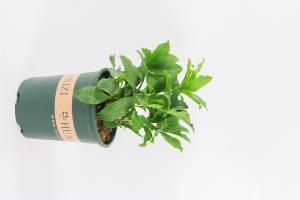Can I Use Pool Water to Water My Plants?
If you own a swimming pool, you may wonder whether the water in it can be used to water your plants. After all, pool water does contain some chemicals, including chlorine, which could be harmful to your garden or houseplants. However, using pool water to water your plants isn't always a bad idea. Here's what you need to know.
The Benefits of Using Pool Water for Plants
One of the biggest advantages of using pool water for plants is that it's a relatively cheap and readily available source of water. Additionally, pool water often contains nutrients like phosphorus and nitrogen, which can be beneficial for plants. In fact, in areas where there's a drought, using pool water to irrigate your plants might be a necessary step to help them thrive.
The Risks of Using Pool Water for Plants
While pool water can be beneficial for plants, there are some risks to consider. One of the primary risks is the potential for chlorine and other chemicals to harm or even kill your plants. If your pool water has a high level of chlorine, it could cause leaf scorch or other damage to your plants. Similarly, if your pool water is too acidic or alkaline, it could throw off the pH balance in your soil and harm your plants.
Tips for Using Pool Water to Water Plants
If you've decided to use pool water to water your plants, there are a few things you can do to minimize the risks and keep your plants healthy. First, you'll want to make sure that the chlorine levels in your pool water are at a safe level for plants. You can test this using a pool water testing kit or by taking a sample of your pool water to a local pool supply store for testing.
Another tip is to apply the pool water slowly and deeply to the soil rather than spraying it directly on the leaves. This will help to minimize any damage to the foliage and ensure that the water is absorbed by the roots.
Finally, if you're still concerned about the potential risks of using pool water on your plants, you can try diluting the pool water with regular tap water. This will help to lower the concentration of chlorine and other chemicals, making it safer for your plants.
Conclusion
In conclusion, using pool water to water your plants can be a great way to conserve water and provide your plants with some beneficial nutrients. However, it's important to be cautious and monitor the chlorine levels in your pool water to avoid damaging your plants. By following these tips, you can safely use pool water to keep your garden and houseplants healthy and thriving.

 how many times do yo...
how many times do yo... how many planted tre...
how many planted tre... how many pine trees ...
how many pine trees ... how many pecan trees...
how many pecan trees... how many plants comp...
how many plants comp... how many plants can ...
how many plants can ... how many plants and ...
how many plants and ... how many pepper plan...
how many pepper plan...































